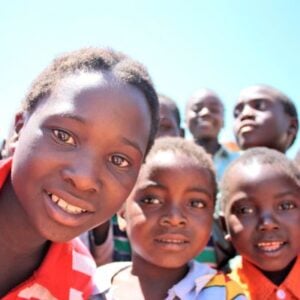On July 25, 2025, a high-level seminar was held at the Palais de Verre Paul Biya in Yaoundé, Cameroon, to address the pressing need for regulating and taxing unhealthy food products. Organized by the Reconciliation and Development Association (RADA), in partnership with national and international health stakeholders such as the Parliamentary Health Funding Caucus, Oxygen (the Cameroonian parliamentary network on tobacco control), the Ministry of Public Health, CHAI, and WHO, the seminar gathered parliamentarians, health experts, and civil society actors. The aim was to tackle the growing burden of diet-related non-communicable diseases (NCDs) in Cameroon, which have been fueled by the unchecked consumption of unhealthy foods.
Globally, diet-related NCDs have now surpassed tobacco as the leading cause of adult mortality, accounting for over 12 million deaths annually. In Cameroon, the public health landscape reflects this global trend, with poor dietary habits contributing significantly to rising rates of cancer, diabetes, and cardiovascular diseases. However, fiscal measures to curb this trend remain weak. Instead of imposing taxes on unhealthy products, current policies have favored tax rebates, making these items more affordable and widely available. Additionally, the absence of marketing regulations for sugary beverages and ultra-processed foods has led to increased exposure among youth, further exacerbating the problem.
The primary goal of the seminar was to strengthen the capacity of Cameroonian parliamentarians to understand and advocate for the implementation of special taxes on unhealthy food products. By doing so, they aim to reduce consumption and shift dietary habits toward healthier alternatives. This advocacy is expected to influence key government ministries to consider tax reforms that prioritize public health over profit.
Experts at the seminar presented compelling evidence of the success of similar policies in countries like Mexico, the United Kingdom, and South Africa, where health-focused taxation has led to measurable public health improvements. These case studies were used to demonstrate that taxation is not only feasible but also highly effective in reducing the intake of unhealthy foods and drinks.
A strong case was also made for linking tax policy to public health outcomes. Experts stressed that reducing access to unhealthy products through taxation could lead to a decline in NCD rates. Additionally, the revenue generated from such taxes could be reinvested in public health programs, nutrition education, and subsidizing healthier food options. This aligns with the WHO’s “3 by 35” initiative, which encourages countries to raise taxes on tobacco, alcohol, and sugary drinks by 50% by the year 2035.
The seminar represents a critical step forward in Cameroon’s battle against NCDs. The next phase relies on parliamentarians actively engaging with relevant government ministries to translate these discussions into actionable policy. By adopting health-focused taxation, Cameroon has the opportunity to protect its population’s well-being and ensure a healthier, more sustainable future.






